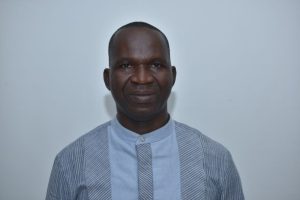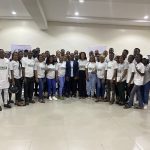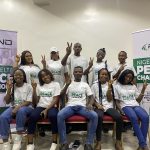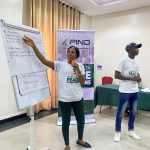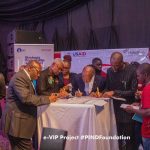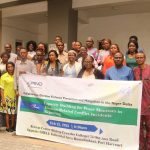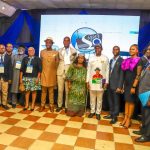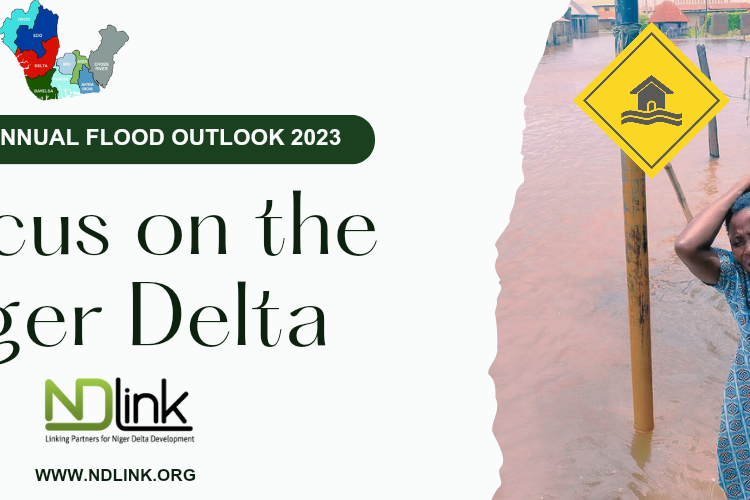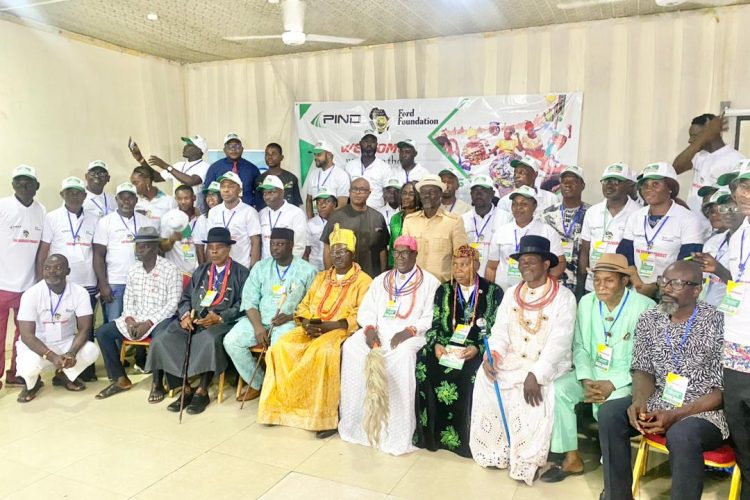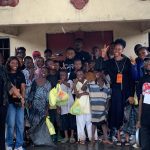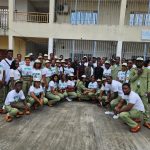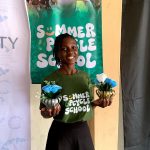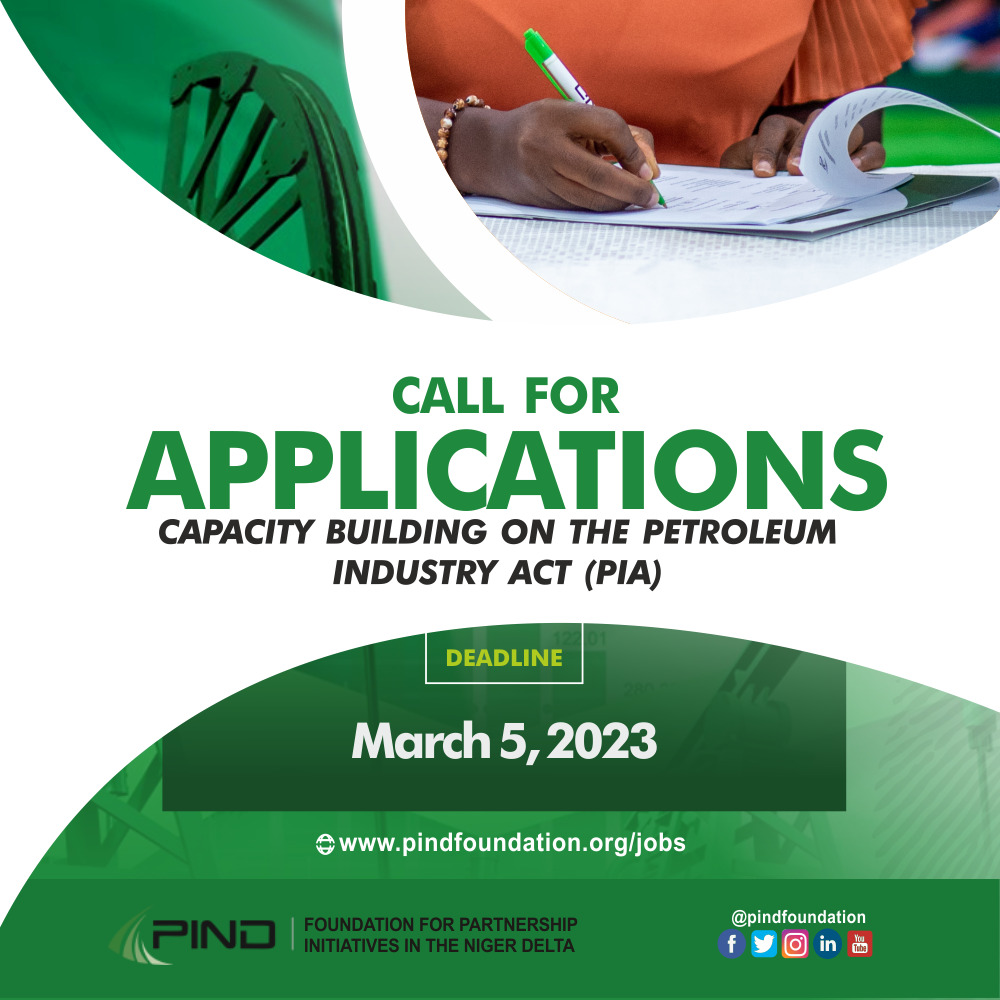
Call for Expression of Interest from NGOs/CSOs in Akwa-Ibom, Bayelsa, Delta, Rivers and Ondo to take part in Capacity Building on the Petroleum Industry Act (PIA)
February 22, 2023
Oloibiri Research Centre excites Shell
March 1, 2023
In a country like Nigeria where elections are often characterized by violence and unrest, the need for effective peacebuilding initiatives cannot be overstated. One organization leading the way in promoting peaceful coexistence in the Niger Delta region is the Foundation for Partnership Initiatives in the Niger Delta (PIND). Through its Peacebuilding Program, PIND works to prevent, mitigate and resolve conflicts within the region, PIND’s approach involves collaboration with various stakeholders, including government, civil society organizations, community leaders, and private sector entities through multi stakeholder partnerships.
In this interview, the NDLink team had a chat with the Manager of PIND’s Peacebuilding Program,Dr David Udofia as he shed light on the organization’s efforts towards ensuring a relatively peaceful and non-violent election in the Niger Delta region.
It’s great to have you with us. To start off this interview, briefly tell us about PIND Foundation and what its Peacebuilding Program does to promote peaceful coexistence in the Niger Delta
PIND is a Nigerian non-profit organization established in 2010 with the sole aim to promote peace and equitable economic growth in Nigeria’s Niger Delta region through multi-stakeholder partnerships. Its Peacebuilding program creates an enabling environment for socio-economic and political development in the 9 Niger Delta States. Its peacebuilding activities are implemented through its two arms- thePartners for Peace(P4P) and Integrated Peace and Development Unit (IPDU). The Peacebuilding program works to prevent, mitigate and resolve conflicts among individuals, groups, communities and institutions.
- 2nd Cohort of Niger Delta Peace Champions Training in Uyo
- 2nd Cohort of Niger Delta Peace Champions Training in Uyo
- 2nd Cohort of Niger Delta Peace Champions Training in Uyo
How is PIND’s Peacebuilding program and its partners contributing towards ensuring a relatively peaceful and non-violent election?
The Peacebuilding program is proactive in this regard. It has initiated collaborative nonviolence intervention projects in the region within the 3 phases of the electioneering process of pre, during and post. Categorically, analysis of the 9 states was done and 3 hotspots States (Akwa Ibom, Delta and Rivers) were identified for targeted nonviolent election intervention.
Within these States, the analysis was deepened to identify the LGAs and communities with a high rate of potential incidents. Thereafter, over 90 Community Stakeholders Network(CSN) were established and constituted with members trained on election conflicts prevention, mitigation and resolution. Also, over 200 Election Peace Monitors(EPN) were trained to monitor and report any election -related incidents to the Early warning and early response(EWER) platform for appropriate actions.
In the 3 States, Governorship Debates have been organized and Peace Pacts signed by the major Gubernatorial candidates. The Peacebuilding program further published 4 election related conflict reports including a special brief tagged “Niger Delta Election Conflict Early Warning Brief” with analysis of 3 potential scenarios for stakeholders’ utilization at the international and national levels. Similarly, the Partners for Peace (P4P)with its over 10,000 membership strength cutting across the 9 Niger Delta States is implementing a series of advocacy and sensitization activities to prevent, mitigate and resolve election related conflicts.
- Political Aspirants signing Peace Pact in Uyo
- Capacity Building for Peace Monitors in Election Related conflict incidents for reporting
- Photos from the Rivers State Gubernatorial Debate an Initiative of PIND Foundation and other Collaborators
The lingering fuel scarcity and the unprecedented Naira scarcity seem to have triggered pockets of unrest across the nation. In your opinion, do you think that this will impact the election process particularly in the Niger Delta?
I think the pre-impact is already felt as the fuel and naira scarcity has sparked protests in all the 9 Niger Delta States. The two issues have restricted citizens’ movement and brought some level of economic hardship among citizens. This will directly or indirectly affect the elections.
On February 9, the Fund for Peace and PIND Foundation hosted a virtual roundtable titled “Nigerian Elections: Prospects for Peace or Violence in the Niger Delta”. How would you describe the outcome of that engagement?
It was a turning point as it gave a global dimension to the nonviolent election campaign by the Peacebuilding program. The attendance was impressive as it cut across the globe. Participants were drawn from Fund for Peace (FFP), Nigeria Working Group (NWG), Alliance for Peacebuilding (AfP), and Search for Common Ground (SFCG) with over 50 persons from foundations, United States government, Nigerian civil society, multilateral organizations, development organizations, and financial institutions to try to look at various perspectives based on the scenarios analysed.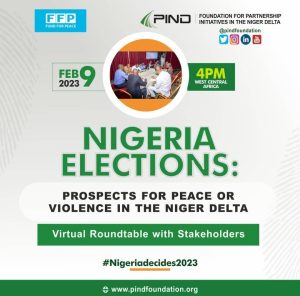
What are the predictions on peace and security during the upcoming Nigerian Elections, especially in the Niger Delta?.
The predictions are based on 3 scenarios- Most likely, Worst and Best Scenarios. Interestingly in a poll conducted on potential scenarios, more than 64% voted for the most likely scenario. The general view was that the 2023 General Elections will be less violent compared to 2015 and 2019 electoral cycles.
As a peace building practitioner, what is your advice to Nigerians in ensuring peaceful elections?
To shun violence and participate in all facets of the election peacefully. Stakeholders should bear in mind that there is life after elections and as such respect for each fundamental human right should be adhered to.
PIND and the Ministry of Niger Delta are collaborating (through a Technical working group), on a Peace and Security Framework for the Niger Delta. How is that going?
It’s a great collaborative engagement geared towards the attainment of a peaceful and secure Niger Delta region. Good to note that the project is owned by the Ministry of Niger Delta Affairs’ (MNDA) with PIND as a technical partner. The TWG is heading on with work assiduously. Only physical engagements have been slowed due to the 2023 General Election, but virtual interactions and planning for the next stage of activities is ongoing.
Finally, As you know, there is an undeniable relationship between peace and economic development, how in your opinion will this relationship be strengthened after the election?
Great question. The indivisibility of peace and economic development cannot be overemphasized. Interestingly, a peaceful election will intensify trust in the system, support to the newly elected government and global acceptability of the elected government which will result in economic growth and development. Thus a peaceful election will lead to increased security and stable society which will further create an enabling ground for economic advancement.
Dr David Udofia is a peacebuilding and development practitioner with over 20 years of progressive experience in various sectors traversing gender, security, counter terrorism, post-conflict reconstruction and development. He is a chartered mediator and conciliator with strides in alternative dispute resolution. He has a track record of success in building capacities of persons for required transformation.
To learn more about PIND Foundation’s Peacebuilding Program, visit https://pindfoundation.org/peacebuilding



